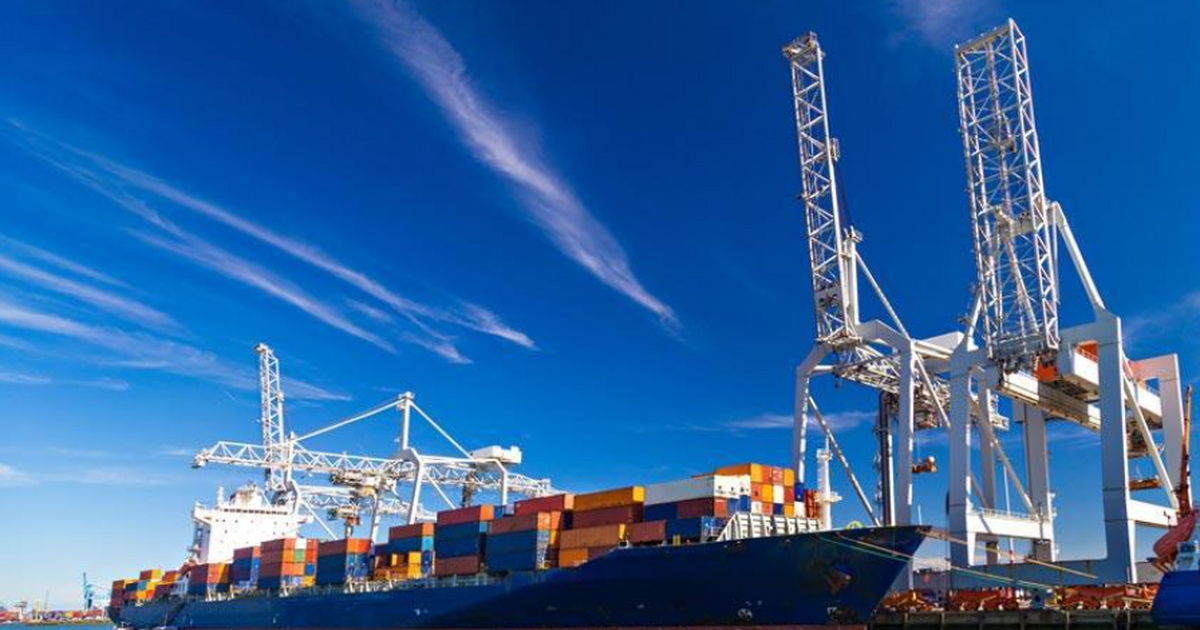Earlier, the region was hit by the Covid crisis, then the Russia-Ukraine War, and now the global economic downturn along with its inherent challenges of high inflation, soaring debt levels, and climate change.
African Economy Outlook 2023
The African Development Bank forecasted a 4.1% economic growth rate for the continent but had to adjust it to a lower figure of 3.8% for 2023.
The expected growth rate of 3.8% is still higher than the global average of 2% amid high inflation, political instability, and prolonged supply chain disruptions.
One of the most intriguing factors to look at for the African economy is the widening gap between different regions in terms of their economic performances.
Let’s dive in to take a deeper look at the economic growth of different regions in Africa.
Leading Economies in Africa
Africa’s largest economies Nigeria, Egypt, and South Africa have all struggled in 2023 so far and will continue to do so in the second half of the year too.
The Nigerian economy is expected to grow by only 2.4% in 2023 down from 3.3% in 2022 amid the currency crisis, monetary policy shifts, global oil price challenges, and other global factors.
Furthermore, currency trading brokers have identified potential in various African nations, offering locals opportunities to participate in the global forex market. This not only brings in foreign investment but also provides a platform for financial literacy and growth.
Similarly, South Africa’s economy is badly dented by its power crisis in 2023 but that’s not the only factor hampering its economic growth in recent years.
Soaring inflation, a prolonged currency crisis, and a long over-due economic overhaul meant a sluggish economic growth of 4.4% for Egypt in 2023.
Overall, the largest economies in Africa by numbers are the worst performers in 2023 in the continent so far.
Emerging Economies in Africa
Some of the emerging economies in African continent are largely the non-resource dependents. Others like Mauritius and Seychelles grow on the banks of tourism.
In the last decade or so, the consistently growing economies in the African continent haven’t been the big names mentioned above.
The top 5 economic growers in the region include countries like Ethiopia, Rwanda, Ghana, Tanzania, and the Democratic Republic of Congo with economic growth rates of 9.5%, 7.1%, 6.3%, 6.1%, and 5.9%.
Resource-dependent countries like Nigeria and Angola have slowed in 2023 while non-resource dependent countries and tourism-dependent countries in the region have outpaced others in 2023.
Struggling Economies in Africa
Apart from some of the big names like South Africa and Nigeria, some countries in the region have been slow growers for the past decade or so.
Botswana, Gabon, Mauritius, Comoros, and Algeria have all achieved an economic growth rate of less than 4.2% (the Average growth rate for the continent).
What Are the Key Challenges to the African Economy?
Global factors like the post-Covid economic recovery, high global inflation rate, a prolonged Russia-Ukraine conflict, and disrupted supply chains are some of the common reasons for economic challenges in Africa.
However, some region-specific challenges have affected the African economies in the last few years adversely.
High Inflation
Unlike the rest of the world, the African region faced high inflation rates for several years even before the current inflation upsurge.
An IMF report shows a staggering 15.5% inflation rate in the African region.
Some countries like Zimbabwe, Sudan, Ghana, and Ethiopia witnessing hyperinflation as high as 102%.
Debt Crisis
Low tax revenue, high inflation, climate crisis, and sluggish economies are some of the key challenges to overcoming the long debt crisis in the region.
Several African nations are dedicating the largest chunk of the budget to serve debt obligation while some countries like Ghana have defaulted on their external debt payments as well.
While African countries have called for more climate financing for the region, some drastic steps like economic policies, tax revenue, diversified revenue, and educational development are needed to overcome the African debt crisis.
Food, Health, and Educational Challenges
With its economic foes, the region struggles to meet its food, health, and educational needs in monetary terms.
It further pushes the economic crisis to new heights in most African countries as they fail to achieve their domestic growth targets in any way.
How Does the Future Hold for the African Region?
Despite several economic challenges, climate crises, and soaring debt levels, the African region has shown resilience for the last many years.
As the data suggests, the region is rightly poised to shift from oil/resources to services and other non-resource factors to diversify its economy.
The region will hold the youngest population in the world which shows an immense potential for growth if utilized properly.
A Mckinsey research report shows that Africa hosts 345 private-sector companies worth $1 billion or more.
If the private sector can play a part in the economic development in the region, it can accelerate the economic growth in the region.
Data Sources:
World Economic Outlook (April 2023) – Inflation rate, average consumer prices (imf.org)
Reimagining Africa’s economic growth | McKinsey
Africa Overview: Development news, research, data | World Bank




